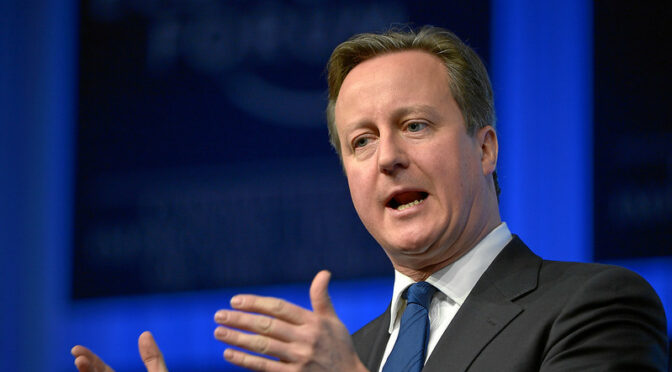Article published in The Daily Telegraph, 14 February 2024. © Richard Kemp
David Cameron has virtually called on Israel to surrender to Hamas as it prepares to destroy the terrorist group in Rafah. For that is surely the meaning of his words on Monday: ‘What we want is an immediate pause in the fighting and we want that pause to lead to a ceasefire.’ That’s also exactly what Hamas want, and has demanded from Israel — an end to the war that it is catastrophically losing.
Would Cameron have called for a ceasefire as Allied troops were poised to cross the Rhine in March 1945? By that time millions of German civilians had been killed in the fighting and it was a certainty that many more would die as the war proceeded towards unconditional German surrender.
Of course Israel cannot halt its offensive now any more than the Allies could then, and Cameron must know that – just as Blinken knows it. In reality their words of caution to Israel amount to virtue signalling aimed at the Israel-sceptical elements of their electorates. Like a schoolmaster lecturing a recalcitrant schoolboy, Cameron has told Israel to ‘stop and think very seriously before it takes any further action’.
Who does he think he’s talking down to? Does he seriously believe the Israeli war cabinet and general staff have not been working round the clock for months, ‘thinking seriously’ about every action they take in this war? Meanwhile Blinken has told Israel to come up with a plan to minimise civilian casualties before they launch the campaign against Hamas in Rafah. In other words, exactly what they are already doing and have been doing with considerable success since this war began.
So far the IDF has wreaked devastation on Hamas. It appears the terror army is no longer able to function as a coherent entity, with reports that senior leaders are unable to communicate with their combat units. The IDF says the Hamas fighters that remain in Rafah must now be dealt with, along with the terrorist leadership there.
As well as that there is a high probability that many of the surviving Israeli hostages are in the city; indeed two of them were rescued in a remarkable special forces operation at the weekend. Destroying Hamas in Rafah is non-negotiable, as is rescuing as many of the hostages as possible.
Cameron, who was reportedly once told by a general that service in the Eton cadet force did not give him military expertise, says he thinks ‘it is impossible to see how you can fight a war amongst these people. There’s nowhere for them to go’. But the IDF will find somewhere for them to go, and will make sure they know where it is and how to get there. Indeed, many have already begun moving north. Not only that but the IDF will surely find a way of enabling humanitarian agencies to get as much aid to them as possible, an immense challenge with the two existing crossing points both flowing into the Rafah area.
If Cameron had his way, and the operation in Rafah were suspended or cancelled, what would have been the point of the last few months of fighting inside Gaza? The remnants of Hamas would quickly regroup, re-arm and renew their decades of violent aggression against Israeli civilians.
Furthermore, an Israeli victory in Gaza could also prevent a potentially greater conflagration in Lebanon. Hizballah has so far been careful to restrict their attacks to the Israeli border area, despite the capability to strike much deeper into Israel. The fear of their own destruction that has created this reticence will be reinforced as the Gaza war proceeds.
Those who demand that Israel stops fighting fail to understand that would make a full-scale war in the north more likely. If they really want to end the bloodshed in the region, and to increase the prospects of diplomatic success against Hizballah, they should be calling on Hamas to hand over the hostages and surrender unconditionally, not giving them hope by condemning Israel’s future prosecution of the war.
Image: World Economic Forum/Flickr

